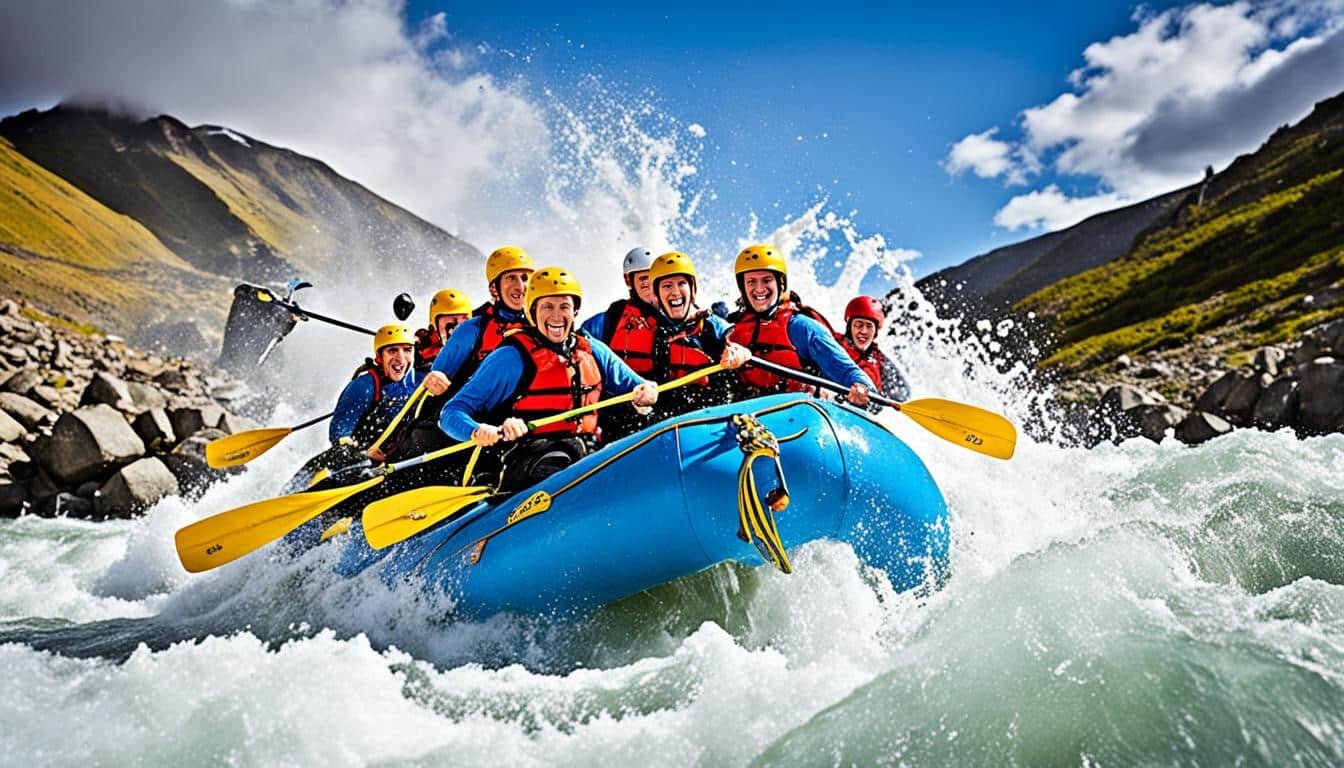Adult adventure travel offers a unique escape, distinct from family vacations. It caters to the independent spirit, providing thrilling experiences and opportunities for self-discovery. This exploration delves into the motivations, destinations, activities, and future of this burgeoning niche market, highlighting its sustainable and responsible aspects.
This journey into the world of adult adventure travel examines the psychological drivers behind this pursuit, analyzing why individuals choose challenging and rewarding experiences. We will explore popular destinations, categorizing them by activity type and assessing their unique selling points. Furthermore, we’ll discuss effective marketing strategies, the crucial role of sustainability, and exciting future trends within this dynamic sector.
Types of Activities within Adult Adventure Travel
Adult adventure travel offers a diverse range of activities catering to varying fitness levels and interests. From adrenaline-pumping challenges to more relaxed explorations, there’s an adventure waiting for everyone. The key is finding the right fit based on your experience and desired intensity. This section categorizes the various activities available, outlining their physical demands and skill requirements.
Land-Based Adventures
Land-based adventures comprise a significant portion of adult adventure travel options. These activities range from gentle walks to strenuous climbs, demanding varying degrees of physical fitness and technical skill.
- Hiking & Trekking: Hiking generally involves shorter, less strenuous trails, often with well-maintained paths. Trekking, on the other hand, typically involves longer, more challenging journeys, often off-trail, potentially requiring multi-day expeditions with camping. Physical demands range from moderate to strenuous, depending on terrain and distance.
- Mountaineering & Rock Climbing: These activities require significant physical strength, endurance, and technical skills. Mountaineering involves ascending mountains, often involving glaciers, ice climbing, and exposure to high altitudes. Rock climbing can range from easier bouldering to challenging multi-pitch climbs requiring specialized equipment and expertise.
- Cycling: Cycling adventures can vary from leisurely bike tours on paved paths to intense mountain biking on challenging terrains. Fitness levels and required skills range accordingly, from basic cycling proficiency to advanced off-road techniques.
- Caving & Canyon Exploration: These activities often involve navigating confined spaces, requiring a degree of physical agility and sometimes specialized equipment. Some explorations might involve rappelling or other technical skills.
Water-Based Adventures
Water-based adventures offer a unique set of challenges and rewards, depending on the chosen activity and location. Skill levels and physical demands vary greatly.
- Kayaking & Canoeing: These activities generally require moderate fitness and basic paddling skills. However, longer expeditions or challenging water conditions can demand higher levels of endurance and proficiency.
- Whitewater Rafting: This activity can range from gentle floats on calm rivers to intense rapids requiring significant strength, balance, and teamwork. Experience and skill levels are crucial for safety.
- Scuba Diving & Snorkeling: Scuba diving requires certification and training, along with a reasonable level of fitness and comfort in the water. Snorkeling is more accessible, requiring minimal training but some swimming ability.
Air-Based Adventures
Air-based adventures provide breathtaking perspectives and thrilling experiences, but often come with higher risk and require specific training or certifications.
- Hot Air Ballooning: This activity typically requires minimal physical exertion but may be unsuitable for individuals with certain medical conditions. It’s a more relaxed adventure experience.
- Paragliding & Hang Gliding: These activities demand a higher level of fitness, skill, and often require specialized training and certification before undertaking solo flights. They are more physically demanding and require excellent balance and coordination.
Sustainability and Responsible Tourism in Adult Adventure Travel
Sustainable practices are paramount in adult adventure travel, ensuring the longevity of both the destinations and the industry itself. Ignoring environmental and social impacts jeopardizes the very essence of adventure tourism, diminishing the experiences future travelers can enjoy. Responsible tourism aims to minimize negative impacts while maximizing positive contributions to local communities and ecosystems.
The environmental and social impacts of adventure tourism can be significant. Unsustainable practices lead to habitat destruction, pollution (air, water, and noise), and resource depletion. Socially, poorly managed tourism can displace local populations, exploit workers, and contribute to cultural commodification, eroding the very authenticity adventurers seek. Mitigation strategies involve careful planning, collaboration with local communities, and the adoption of eco-friendly practices by operators and travelers alike.
Environmental Impacts and Mitigation Strategies
Minimizing environmental damage requires a multi-pronged approach. This includes reducing carbon emissions through efficient transportation choices (e.g., supporting operators using fuel-efficient vehicles or promoting cycling and hiking), minimizing waste generation (e.g., implementing robust recycling programs and reducing single-use plastics), and protecting fragile ecosystems (e.g., adhering to designated trails and avoiding disturbance of wildlife). Furthermore, responsible water usage and the preservation of biodiversity are crucial. For instance, an operator might implement water conservation measures at their lodges and actively participate in reforestation projects to offset their carbon footprint. The use of renewable energy sources in accommodations further contributes to a reduced environmental impact.
Social Impacts and Mitigation Strategies
Adventure tourism, when managed responsibly, can be a powerful tool for community development. However, unchecked growth can lead to social issues. Fair wages and working conditions for local guides and staff are essential, ensuring equitable distribution of economic benefits. Respect for local cultures and traditions must be prioritized, avoiding cultural appropriation or insensitive practices. Supporting local businesses and communities through purchasing local goods and services, and engaging with local artisans, contributes directly to sustainable development. For example, a tour operator might prioritize employing local guides, ensuring they receive fair compensation and training, and actively involve local communities in the design and implementation of tour itineraries.
Examples of Eco-Friendly and Responsible Adventure Travel Operators
Many operators are embracing sustainability as a core value. While specific examples would require citing specific companies and their verifiable practices (which would need further research and fact-checking to ensure accuracy), a responsible operator might be identified by their certifications (e.g., B Corp certification, Sustainable Tourism certification), transparent sustainability policies, community involvement programs, and commitment to reducing their environmental footprint. These might include detailed information on their carbon offsetting programs, waste management strategies, and their commitment to fair labor practices. Look for operators who actively communicate their commitment to sustainability and provide evidence of their actions.
Final Review
Adult adventure travel represents more than just a vacation; it’s a transformative experience. By embracing sustainable practices and innovative approaches, the industry continues to evolve, offering increasingly diverse and enriching opportunities for individuals seeking adventure, self-growth, and a deeper connection with the world. The future promises even more exciting developments, fueled by technological advancements and a growing global awareness of responsible tourism.




